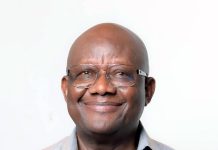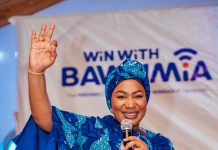The Bank of Ghana organised a workshop for the Committee for Co-Operation between the Law Enforcement Agencies and the Banking Community (COLAB) to help in the fight against financial crimes.
Addressing the gathering in Accra on Tuesday, this week, the second deputy governor of BoG, Mrs. Elsie Addo Awadzi, stated that the formation of COCLAB in Ghana was spearheaded by the Bank of Ghana, building on INTERPOL’s 1988 Resolution, to help curb economic crime around the world.
She noted that the Bank of Ghana recently revived the Committee to provide a platform for strong collaboration among the banking industry, national security and law enforcement agencies; the Judiciary and other key Agencies to step up the fight against financial crime.
This Committee, according to the second deputy governor, noted that it draws its membership from Bank of Ghana, Ghana Association of Banks, the Judiciary, the Ministry of Justice and Attorney General’s Department, the Ministry of Interior, the National Security Coordinator’s Secretariat, Interpol Ghana, the Economic and Organised Crime Office, the Financial Intelligence Centre, the National Investigations Bureau, the Ghana Police Service, Ghana Immigration Service, the Ghana Revenue Authority, the Registrar General’s Department and the National Communication Authority.
Mrs. Awadzi indicated that the work of the of Committee is critical now, more than ever, in combating financial crime through information sharing and strategies to help prevent financial crime and working closely together to investigate and enforce breaches of relevant rules against perpetrators of financial crime and their enablers.
“Financial crime in all its forms, including money laundering, terrorist financing, fraud (whether through offline or cyber related), siphoning and diversion of funds from the financial system by insiders to related parties and others, all erode the integrity of our financial system and destroys the confidence and trust that the Ghanaian public and our foreign counterparts repose in it”, she bemoaned.
This, she disclosed, has adverse ramifications for the economy, such as a reduction in the rate of savings and investments in the formal financial system, a reduction in international trade facilities and foreign investment inflows that support our economy.
Another worrying trend from the 2021 fraud report, the deputy governor revealed, is the increasing levels of fraud, associated with electronic money channels such as ATM fraud, mobile money fraud, and cyber fraud.
She, therefore, urged the members of COLAB to take a critical look at these developments and identify concrete measures to help to address the underlying factors, so that they can reverse the trends.
“I also urge you to work together to speed up investigations and prosecutions for financial crimes, that led to the failure and demise of 420 of our regulated institutions in our recent past, as well as brought untold hardships to depositors former employees, other creditors and ultimately tax payers that had to pay to provide relief for those affected.” she urged.
Mrs. Elsie Addo Awadzi appealed to COLAB to support Bank of Ghana’s efforts to sanitize the forex bureau sector, by strictly enforcing existing rules for the fair and transparent conduct of business by licensed forex bureaus, and by clamping down on illegal forex operations (the so-called black market).









